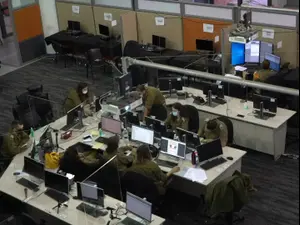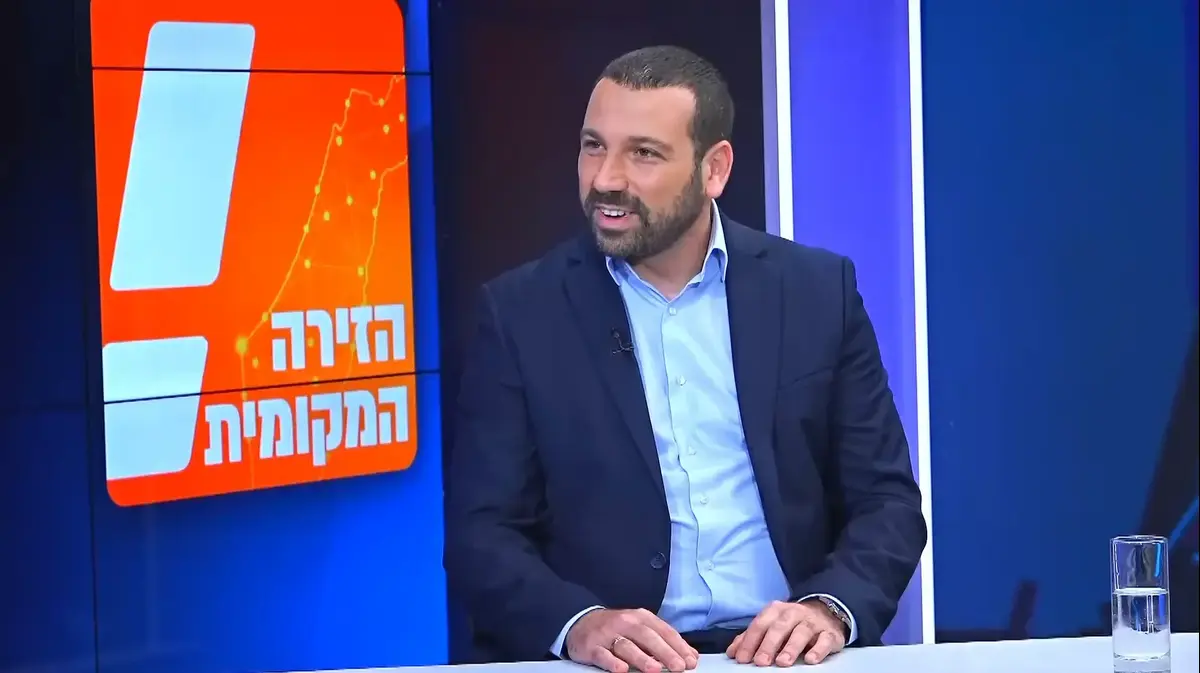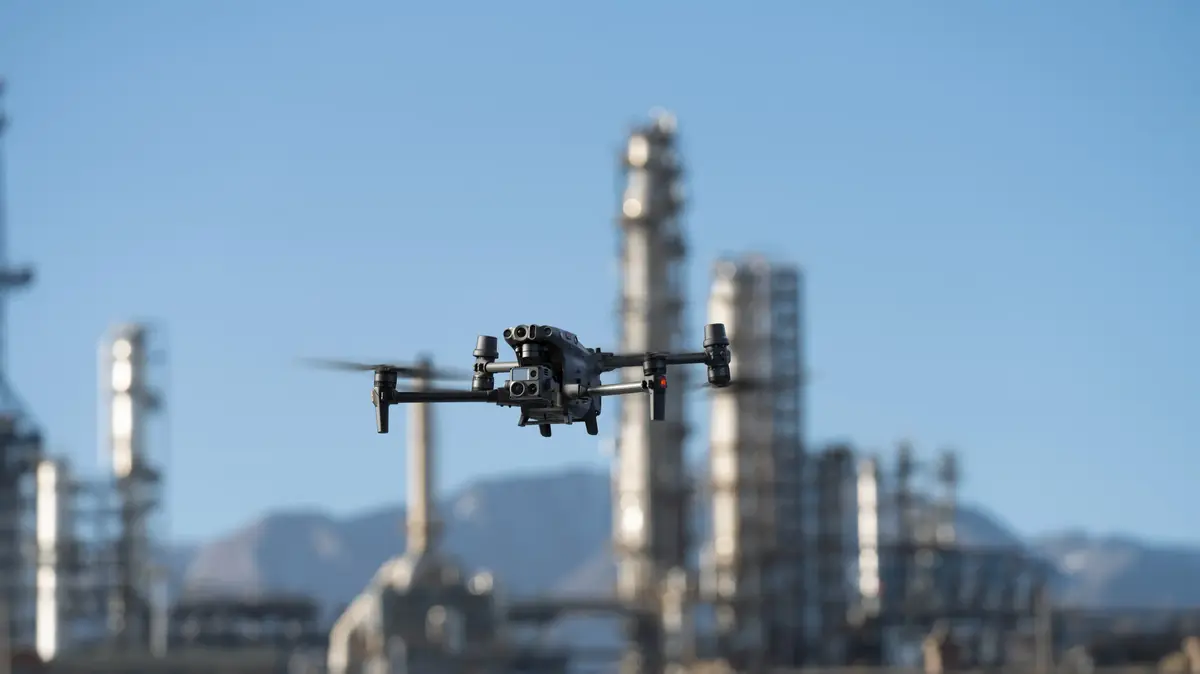news
Corona
Locations, cameras and location sharing: the technological additions to the fight in Corona
Similar to the use of GSS icons to complete the epidemiological system, innovative alternatives were used worldwide to locate contacts of Corona patients. Most countries, such as Italy or Germany, used the icons of cellular companies, and in South Korea, Singapore and Taiwan developed applications for public use.
Tags
technology
GSS
Corona virus
Mikey Levy
Saturday, October 24, 2020, 1:00 p.m.
Share on Facebook
Share on WhatsApp
Share on general
Share on general
Share on Twitter
Share on Email
0 comments
An ultra-Orthodox school opens in Kiryat Ono, students from Bnei Brak ...
The challenge of Alon Headquarters: 39% of insulation insurers do not report ...
Netanyahu in a speech 40 signatures in the Knesset: "The opposition is wasting ...
Gamzo in the Knesset: The isolation will be shortened to 12 existing days ...
Shmuel Maman who died of coronation two weeks after his mother was brought ...
Relief in closure: kindergartens, beaches and reserves opened, ...
Shlomi Shabbat
First in Europe: Ireland enters the second closure on 20.10.20
Netanyahu: I will bring to approval the increase in fines against those who violate ...
Obama at a Bayden rally in Pennsylvania: "Trump can not ...
Contrary to the Corona's guidelines: Talmud Torah was opened in cities ...
The Arab-Hebrew Theater in Jaffa will perform on October 20, 2020 ...
Photography: Knesset Channel, Editing: Nir Chen
All over the world we are facing the problem of epidemiological investigations and trying to understand where the patients were and who should be put in isolation.
These are necessary steps, designed to eradicate the plague.
Just in recent days, it has been reported that in the UK they kept the list of patients in an Excel document, and instead of listing the names of patients in rows, they listed them in columns.
While the rows in Excel are unlimited and almost infinite, the columns in the tables in the software are limited.
When the file was filled, information of more than 16,000 infected people was deleted.
Israel is also dealing with this problem, with more than 8,000 cases of infection being diagnosed per day during peak days, making the epidemiological task almost impossible.
so what are we doing?
Israel knows a thing or two about locating and locating terrorists, and in an attempt to control the epidemic, the government chose to use an unconventional move: cellular, technology-based location and an algorithm developed by the GSS.
More on Walla!
NEWS
The GSS located about 70,000 patients, but the delay in investigations disrupts the fight against the virus
Appeal to Netanyahu and the Ombudsman: To cancel the recruitment of GSS members to fight in Corona in Arab society
The next wave of masks is already here: more comfortable, beautiful and protective
An almost impossible epidemiological task.
A police checkpoint at the entrance to the beach in Tel Aviv (Photo: Reuven Castro)
In Israel, a special law was enacted that allows emergency services - police, fire services and MDA, to obtain the position of a citizen during an emergency call automatically from media providers. Although the law passed a third reading in the Knesset and was published in regulations in 2018, to date no rescue services in Israel This information is automatically and orderly.
How location works
The smartphone is connected to cellular antennas
If it is a dense environment, it connects to several antennas
The GSS or intelligence agencies carry out a process called "triangulation"
The location of the smartphone is obtained with high or low accuracy percentages, depending on the intensity of reception
More on Walla!
NEWS
UK default: Data on 16,000 corona patients have been lost, and fears of losing control are growing
To the full article
The method works like this: the smartphone makes its location and ours by nature, it connects to the nearest antenna to get strong reception, save battery and the user can enjoy the cellular services in a good and smooth way.
When the phone is connected to an antenna, the cellular company knows that the user is within a certain radius of it, and can guess where he is according to his movements in space.
The GSS has apparently developed algorithms that improve the accuracy of spotting, but this still does not prevent false spotting.
How does it work in the world?
In Italy, the cellular company Vodafone performs placements at the request of the officials, and transmits them anonymously.
But the information conveyed is mainly intended to see where the citizens have gone.
For example, in the Lombardy province that was hit by Corona, they wanted to check where the citizens were going during the closure.
In Austria, the cellular company Telekom Austria performs the placements according to official sources, and it also transmits the data anonymously, in order to produce movement patterns and not to track specific people.
In Vietnam, they launched an app called "SmartCity", which was downloaded voluntarily by millions of users, and is designed to track the sources of the infection in Hanoi, the country's capital.
Hong Kong has chosen to distribute electronic bracelets to anyone who is committed to isolation, thus making sure he does not violate it.
If he is caught violating the insulation - he will be fined.
In China, on the other hand, the administration has up-to-date information on civilian traffic, thanks to relentless placements.
Anonymous data transfer.
Corona policewoman in Rome, Italy, this month (Photo: Reuters)
Dr. Zvi Marom
Dr. Zvi Marom, chairman of the High-Tech Association of the Manufacturers' Association, explained that "there are many countries that have built location systems, but so far I have not encountered democracies that have implemented security service locations on the population."
He said, "There is no doubt that the Germans or the English have no less capabilities than the GSS, but they have never activated it."
He added that "the approach taken in many countries is the use of glands."
Those who went in the direction of location systems, usually went in that direction.
Of course you can do a lot more horrible things: you can decide to attach an electronic wristband to each Corona patient, you can do a lot of things, but the question is where is the line where you stop. "He said," This is why in most countries, those who already want a location system "Usually uses methods called 'Google and Apple's, meaning glands-based."
Dr. Marom added that "most of the enforcement of the location is unfortunate."
He explained that "there is no doubt that there is high percentage of errors in GSS enforcement, but at least at first you could not appeal it.
This is a kind of terrible fate, and until they answered you - you could not get out of isolation. "For example, Dr. Marom said that" we had a CEO who lived in the moshav, and for some reason the location system decided that at 02:00 at night he, of all things in the world, He visited the local supermarket, which is 1.5 km away.
He explained that "his wife could testify that he was with her, and the writer was closed at all, but even though we wrote letters and statements to the Ministry of Health, we never received a reply and 14 days passed while he was in solitary confinement."
Gathering the most serious and exposed information.
Queue for corona tests in Shandong Province, China.
This month (Photo: Reuters)
"The sluggishness is a bit surprising, because in the end it is not suitable for a start-up nation," continued the chairman of the High-Tech Association of the Manufacturers' Association. "I have to say, 'I have to say that everything is methods and organization, orderly management, and not technology that I have in my power and we have nothing similar.'
"At the top of the pyramid - the duty to preserve the right to privacy"
Adv. Ilan Shadi
Advocate Ilan Shadi, an expert in criminal law and cyber law, said that "the starting point is the state's duty to preserve the right to privacy, which is one of the rights located at the top of the human rights pyramid." He explained that "I do understand that the state's efforts "The spread of the corona epidemic, the government has tried to authorize the GSS to use some of its technological capabilities reserved for cases of 'ticking bomb', but it is difficult for me to treat corona patients as such."
Advocate Shadi, who serves as chair of the Science and Technology Law Forum and vice chair of the Bar Association's criminal forum, sided with the High Court's position that "we must be careful that the exceptional events we face these days do not leave us on a slippery slope. Of the use of exceptional and offensive means without justification. "
According to Adv. Shadi, although following the petitions filed, the Supreme Court ruled that GSS actions must be enshrined in law through the Knesset and not only in government emergency regulations, and the state did, but there are fears that certain factors "exploited" the public sense of the time. A national emergency, requiring extreme measures.
"It is precisely in such difficult times that the basic principles of democracy have been established, whether it is defending against an external enemy or against a violent virus," Advocate Shadi clarified. "As someone who is well aware of the great sensitivity of Israel's technological means, I am concerned not only For the use of military tools in civil society inside, but also from the country - that is, the leakage of GSS capabilities due to their use in public.
Authorities collect information, but in a way that protects the citizen.
Berlin Central Railway Station, this week (Photo: Reuters)
With the exception of China, it seems that no country in the world has used local intelligence services.
In countries like Germany, Italy, Taiwan and South Korea there are laws to collect information about people, in a way that will protect their privacy.
In some countries we have repaired the cell phones of the people, but still make sure to criticize the move under the existing regulation and law in the country.
In South Korea, for example, credit data, surveillance cameras and even surveillance are used via phone calls and a similar application to Shield 2.
In these countries there are very strict laws regarding the protection of user information, so even if in practice these are "strict" measures for the country and the bodies collecting the information. There is a great deal of responsibility that may endanger them legally, something that does not exist in Israel or China.
According to the data, in Taiwan and South Korea, the moderate method worked and hugely.
On the other hand, the collection of information in China is the most serious and exposed: the Chinese do not get sick by any means, forcing citizens to download an app to their mobile device.
Through this widget the device is populated with full information, and even street cameras are used to locate the people.
Moreover, in China it is necessary to scan QR code in public places.
A kind of "check-in" at the destination location.
The problem with the Israeli method - false identification
Contrary to expectations, GSS identifications are inaccurate and may include people who were at home or were not in a verified patient environment. For example, S. received a notification from the GSS last Saturday that she should go into isolation because she was in the company of a verified patient.
But S. in general stayed in her private home and did not leave it.
If in the past the citizens had complained that the hotline they were referring to for false identification had not functioned, this time the situation seemed to be different, and within minutes S. was able to appeal the message she received and get a "release from solitary confinement".
As in S.'s case, many people every day go into false isolation, are forced to sign sick days and are financially harmed because of an inaccurate system.
But this is not all of Israel's failure in the technological fight against the virus.
She was one of the first countries to launch a valentine location app - "The Shield".
The app collected the user data, saved them on the smartphone, and at the same time downloaded the epidemiological array data.
In this way the widget updated if the user was in contact with a verified patient.
In fact, without the epidemiological array, the app is ineffective at all.
Shortly afterwards, the Ministry of Health launched the "Shield 2" app, which is based on Bluetooth connectivity, and thus our cell phone actually creates connections with other cell phones in the area.
It is a process that preserves the privacy of users, and is designed to fight the corona virus, while fully protecting privacy.
But the effectiveness of the app depends on the amount of users, and it seems that "Shield 2" was not a great success, similar to the first widget.
Whether it's for fear of 'false identities', or the inability to trust the government.
Not everyone in Israel has smart devices.
Contact phone (Photo: Nati Shochat, Flash 90)
In Singapore, too, they encountered a similar problem with the app they developed, when on April 1, only 12% of the country's residents downloaded the app.
Three weeks later, the Prime Minister of Singapore asked the citizens to download the app that works, similar to "Shield 2", via a Bluetooth link.
A Oxford University researcher has presented a model whereby digital surveillance devices will be effective only if 60% of the population installs them.
There seems to be a common problem all over the world, or rather in all democracies: citizens do not cooperate with the government.
Whether it is due to suspicions against the government, or simply a sense of complacency.
Another problem in Israel is that not everyone has smartphones.
Although we are the "start-up nation", the ultra-Orthodox use a kosher phone, to which applications cannot be downloaded.
Although Apple and Google have mobilized in a short time and launched an effective, simple and convenient solution, many countries have chosen not to adopt it, due to the many limitations that the technology giants pile up or their lack of flexibility.
In many European countries a second wave is beginning, and it seems that in the meantime the ultimate solution is closure.
Share on Facebook
Share on WhatsApp
Share on general
Share on general
Share on Twitter
Share on Email
0 comments










/cloudfront-eu-central-1.images.arcpublishing.com/prisa/2C5HI6YHNFHDLJSBNWHOIAS2AE.jpeg)




